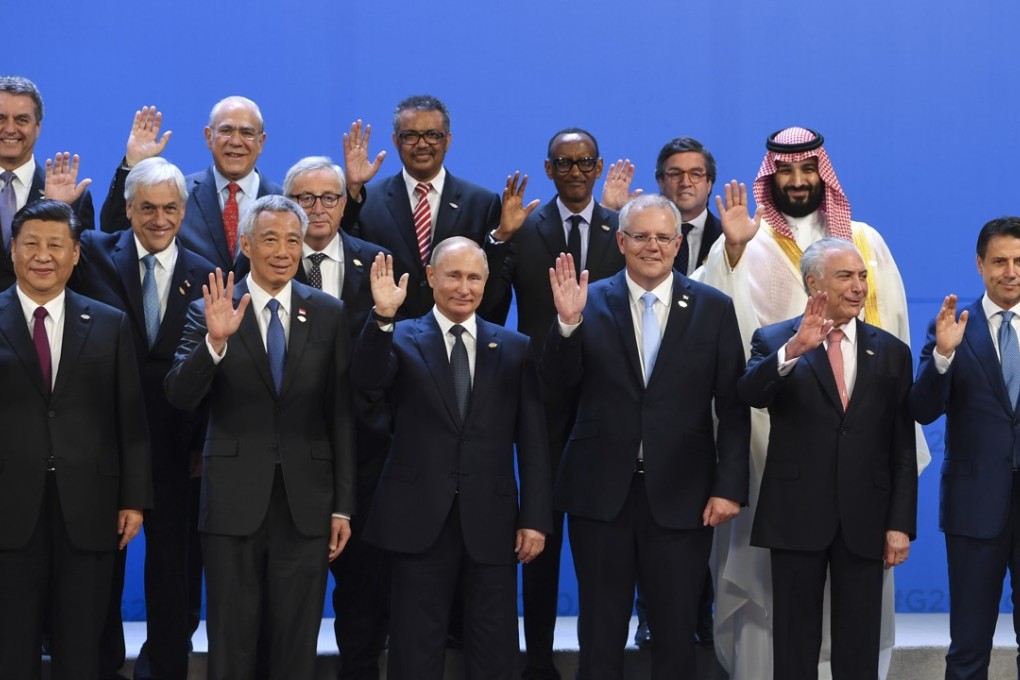Opinion | G20 has quietly but surely tackled important issues that go to the heart of the China-US dispute
- The G20 agreement can be seen as an achievement in itself, that sets the direction for the officials and their political masters responsible for putting the multilateral world trading system on a free and fair path

Major summits are defined these days by rivalry between China and the United States. The eruption of their trade war deepened the divide, making it harder for international gatherings to forge a consensus that everyone could put their name to. That was reflected in the failure of the 21 leaders at the recent Asia-Pacific Economic Cooperation summit to agree on a joint declaration for the first time in its 25-year history. As a result, expectations of the just concluded Group of 20 summit of the world’s major economies were hedged with caution, especially given repeated provocative warnings by the US of its intention to further raise tariffs on Chinese goods.
In the event, the news ahead of the G20 summit that President Xi Jinping and his American counterpart, Donald Trump, would hold a bilateral summit to deal with their dispute head to head apparently made a difference. It cleared the way for G20 consensus on uncontroversial if momentous global issues while leaving the big two to address bilateral tensions.
The 90-day trade war truce agreed between Xi and Trump may have got the bigger headlines and had a bigger impact on ordinary people, but the G20 communique tackled some important issues that go to the heart of the US-China dispute. It emphasised the importance of reform of the World Trade Organisation, of which China has been a member almost since the turn of the century, a period covering the most dynamic phase of its world rise. This passage in the communique was seen as targeting China’s allegedly unfair business practices. Using diplomatic language to acknowledge grievances with some aspects of China’s trade and business expansion, the G20 found “some room for improvement” [in the WTO] if the multilateral trading system was to meet its objectives. It pledged to “use all policy tools” to achieve strong, sustainable, balanced and inclusive growth within a free and fair trading system.
The G20 leaders omitted the traditional phrase in their communique – “fight protectionism”. If that is a nod to American sensitivity about criticism of its tariffs, it may be seen as having been balanced later by US agreement to suspend an increase in tariffs in return for Chinese promises to buy more American goods and discuss trade practices that lack specifics and time frames.
But, the omission of a key commitment to fight the evil of protectionist trade policies, however rationalised or justified, has to raise questions about the current international framework’s ability to reach common ground. That aside, the G20 agreement can be seen as an achievement in itself, that sets the direction for the officials and their political masters responsible for putting the multilateral world trading system on a free and fair path.

